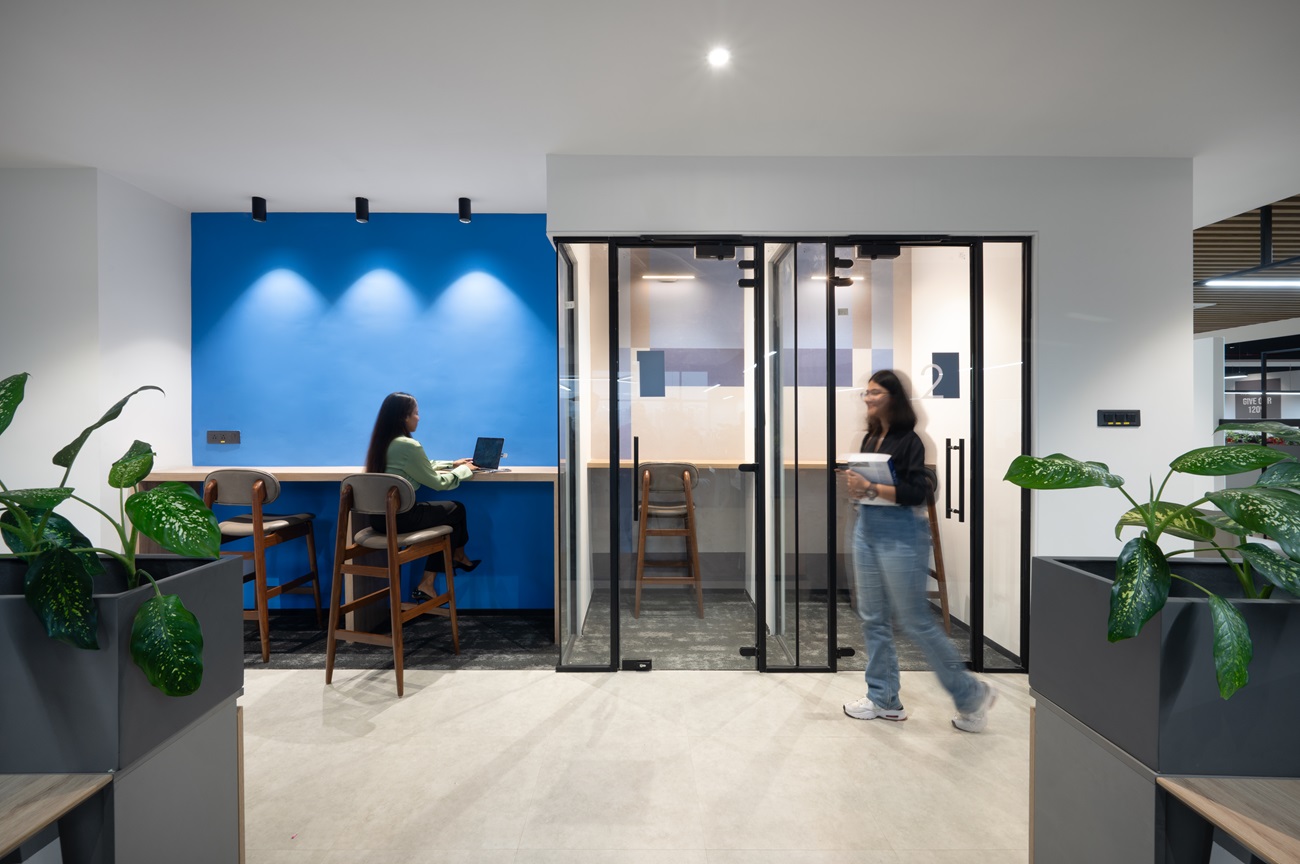The shift towards remote work has revolutionized our professional lives, making hybrid work models more prevalent than ever before. This evolution necessitates a reimagining of office design to accommodate both in-office and remote employees. Crafting spaces that cater to hybrid work models is not just about aesthetics; it’s about functionality, productivity, and employee well-being.
Let’s dive into how we can create effective and inspiring environments for the modern workforce.
Understanding Hybrid Work Models
Hybrid work models blend the flexibility of remote work with the structure of in-office work. This approach allows employees to split their time between working from home and being present in the office. To support this model, office designs must be versatile, offering spaces that cater to various work styles and tasks.
Benefits of Hybrid Work Models
- Flexibility: Employees can choose where they are most productive.
- Work-Life Balance: More control over their schedules helps reduce burnout.
- Cost Savings: Reduced need for large office spaces lowers overhead costs.
Key Elements of Hybrid Office Design
1. Versatile Workstations
Gone are the days of rigid cubicles. Hybrid workspaces require flexible workstations that can be easily reconfigured. This could include:
- Hot Desks: Unassigned desks for employees who come in periodically.
- Collaboration Zones: Areas with large tables and comfortable seating for team meetings.
- Quiet Zones: Dedicated spaces for focused, individual work.
2. Technology Integration
Seamless technology integration is crucial in hybrid work environments. Ensure your office is equipped with:
- High-Speed Internet: Essential for video conferences and online collaboration.
- Video Conferencing Tools: High-quality cameras, microphones, and screens in meeting rooms.
- Cloud-Based Systems: For easy access to documents and collaboration tools.
3. Wellness Areas
In contemporary office design, the health and happiness of workers is a top priority. Incorporate spaces that promote physical and mental health, such as:
- Breakout Rooms: For relaxation and informal meetings.
- Fitness Areas: Small gyms or yoga spaces to encourage physical activity.
- Green Spaces: Indoor plants and natural light to enhance mood and productivity.
4. Ergonomic Furniture
Comfort is key to preventing workplace injuries and maintaining productivity. Invest in ergonomic furniture like:
- Adjustable Desks: Allowing employees to switch between sitting and standing.
- Supportive Chairs: Providing proper back and neck support.
- Monitor Stands: To ensure screens are at eye level, reducing strain.
5. Sustainable Design
There is no such thing as a passing trend; sustainability is a fundamental need. Design your office with eco-friendly practices in mind:
- Energy-Efficient Lighting: Use LED lights and natural daylight wherever possible.
- Recycled Materials: Furniture and décor made from recycled or sustainable materials.
- Waste Management Systems: Promote recycling and composting within the office.
Creating a Home Office that Works
A significant aspect of hybrid work is ensuring that employees have a productive home office setup. Guide your team with tips on creating an effective home workspace:
- Dedicated Space: Encourage employees to set up a specific area for work to maintain focus.
- Proper Equipment: Ensure they have access to essential tools like a reliable computer, high-speed internet, and ergonomic furniture.
- Minimize Distractions: Advice on ways to reduce interruptions, such as noise-canceling headphones and a tidy workspace.
Designing for Collaboration and Connection
Maintaining a strong team dynamic in a hybrid model can be challenging. Wellness-focused office interiors should foster collaboration and connection, both in-person and virtually.
Collaborative Spaces
Create environments that encourage teamwork:
- Open Plan Areas: For spontaneous discussions and brainstorming sessions.
- Meeting Rooms: Equipped with collaborative tools like whiteboards and screens.
Casual Gathering Spots: Lounges and kitchens where informal conversations can spark ideas.
Virtual Collaboration
Enhance remote teamwork with technology that bridges the gap between home and office:
- Virtual Meeting Platforms: Invest in reliable software for seamless communication.
- Online Collaboration Tools: Platforms like Slack, Trello, or Asana to manage projects and tasks.
- Regular Check-Ins: Schedule consistent virtual meetings to keep everyone connected and engaged.
The Future of Hybrid Workspaces
The future of work is flexible, and office design must continue to evolve to meet changing needs with the leading office interior design company. This involves:
- Continuous Feedback: Regularly seek employee input on workspace effectiveness and make necessary adjustments.
- Adaptable Spaces: Design with the future in mind, ensuring spaces can be easily modified as needs change.
- Innovative Solutions: Stay ahead of trends by incorporating new technologies and design ideas that enhance the hybrid work experience.
Studio AsA: Your Partner in Crafting Hybrid Workspaces
In conclusion, the transition to hybrid work models demands a thoughtful approach to office design. By focusing on versatility, technology, wellness, and sustainability, you can create spaces that support your team’s diverse needs and preferences. Embrace the future of work with a design that empowers your employees to perform at their best, no matter where they are.
Studio AsA specializes in creating inspiring and functional environments for various commercial spaces, including office spaces, hotels, restaurants, and co-working areas. The expert team of interior designers for office space understands the nuances of hybrid work models and designs spaces that enhance productivity, well-being, and collaboration. Contact the experts today to start your journey toward a more flexible and innovative office design.


YOUR COMMENT